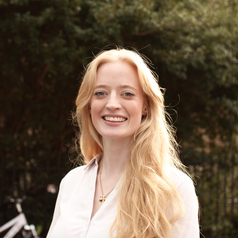
Natasha Lutz
PhD in Disturbance Ecology and Machine Learning, University of Oxford
Natasha is a DPhil candidate (PhD) in the Smith School of Enterprise and the Environment and the School of Geography and the Environment at the University of Oxford. Her research uses remote sensing and machine learning to investigate how ecosystem structure and functioning change in response to increased drought and fire occurrence. Her ecological research focuses on the temperate and savanna ecosystems of Australia and the Brazilian Cerrado. Natasha also researches the current and future role of carbon dioxide removal in the decarbonisation pathways of state and corporate actors.
Less ![]()
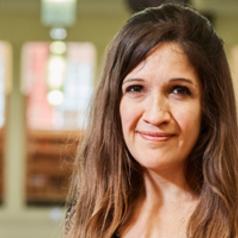
Natasha McKeever
Lecturer in Applied Ethics, University of Leeds
Natasha has worked at the IDEA (Inter-Disciplinary Ethics Applied) Centre at the University of Leeds since July 2017. Prior to this she worked as a Philosophy teacher at St Paul’s School, London, and in the Civil Service Fast Stream, doing policy work at the Department of Education, the Department of Health, and the Department of Work and Pensions.
She completed a PhD in Philosophy at the University of Sheffield in 2014 entitled 'Romantic Love and Monogamy: a Philosophical Exploration', under the supervision of Dr Christopher Bennett and Professor Jennifer Saul. Before that, she did a PGCE at Leeds Trinity University College, and she has an MA in Political Theory and a BA in Philosophy from the University of Sheffield.
Natasha’s main research interests are in the Philosophy of Love and Sex. She is also interested in Applied Ethics more generally.
Less ![]()

Natasha Mhuriro
Assistant Researcher, Public Policy, Simon Fraser University
Natasha is a research assistant with the Community Housing Canada initiative. She holds a master’s degree in public policy from SFU’s School of Public Policy. Her research interests encompass a range of current public policy solutions, including access to safe, affordable housing options for racialized communities, and the use of disaggregated race-based data to address inequities in housing. More recently, her research examines the racialized demographics of senior governance positions within public Canadian corporations, aiming to identify barriers to achieving more equitable representation. Overall, Natasha’s work is driven by a deep-rooted commitment to challenging colonial injustices embedded within the systems that govern society.
Less ![]()

Natasha Nassar
Professor of Paediatric and Perinatal Epidemiology and Chair in Translational Childhood Medicine, University of Sydney
Professor Natasha Nassar is a perinatal and paediatric epidemiologist, Financial Markets Foundation for Children Chair in Translational Childhood Medicine and NHMRC Leadership Fellow at the Menzies Centre for Health Policy and Economics and Children’s Hospital at Westmead Clinical School, University of Sydney. She is also the Charles Perkins Centre Populations Domain Leader with a key role in facilitating population-based research investigating cardiovascular disease, obesity, diabetes and other related conditions across a wide range of disciplines.
Less ![]()
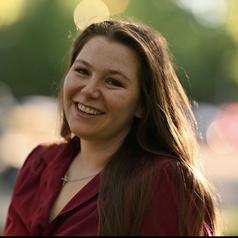
Natasha Szuhan
Lecturer, History and Sociology, Australian National University
Dr Natasha Szuhan lectures in History and Sociology at the Australian National University.
She holds a BA (Hons) and Graduate Diploma in the Humanities and Social Sciences, an MA (Research) and PhD (University of Melbourne).
Natasha has completed a postdoctoral research fellowship in the medical humanities with the University of Strathclyde and Shanghai University and researched and lectured at the Australian National University, University of Melbourne, University of Adelaide, University of New South Wales, and Shanghai University.
She has published two manuscripts: 'The Family Planning Association and Contraceptive Science and Technology in Mid-Twentieth Century Britain' and 'Prahran and the Dismal Swamp'.
She is currently undertaking an oral history of oral contraceptives in Australia.
Less ![]()

Natasha Ward
Lead Researcher, RMIT University
Natasha Ward is an Aboriginal teacher and researcher. They have a passion for Indigenous knowledges being incorporated into western education systems.
Less ![]()

Natasha Ziebell
Senior Lecturer, Melbourne Graduate School Of Education, The University of Melbourne
Dr Natasha Ziebell is a Lecturer at the Melbourne Graduate School of Education. She has worked extensively in designing and implementing initial teacher education programs, and conducts professional learning programs for teachers.
Her research focuses on how curriculum and assessment are aligned, designed and implemented to cater for all students. A distinguishing feature of her work is its collaborative nature, bridging disciplines and involving co-design with schools, institutions and education departments. She has worked on various projects that support collaboration to optimise curriculum design and implementation.
Natasha started her career as a teacher in Early Childhood Education and Primary Schools.
Less ![]()

Natasza Kosakowska-Berezecka
Professor and Head of the Division of Cross-Cultural and Gender Psychology, University of Gdansk
Less ![]()

Nate Anderson
PhD candidate, The University of Western Australia
I am an ecologist with a background in guiding and outdoor education. I am currently completing a PhD investigating the vulnerability of Red Tingle trees (Eucalyptus jacksonii) to altered fire regimes and a warming/drying climate.
Less ![]()
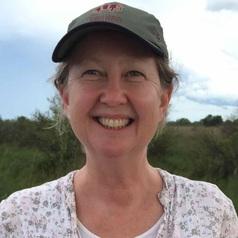
Nathalie Cooke
Professor of English and Associate Dean (McGill Library), McGill University
Currently Associate Dean of McGill University Library with oversight of ROAAr, a group of rare and special collections units. I have previously served as Associate Dean of Arts, and Associate Provost of the University. My research and teaching focuses on the evolution of literary and culinary tastes in Canada. My most recent project involves scrutiny of a forgotten food-related practice involving riddles, which has extended my focus to Britain and America of the nineteenth century. I am a full professor in the Department of English.
Less ![]()
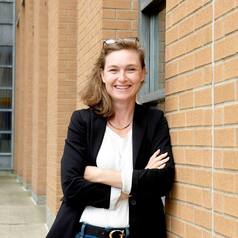
Nathalie Grandvaux
Professeure en biochimie des interactions hôte-virus, Université de Montréal
Nathalie Grandvaux, Ph.D est professeure titulaire au département de biochimie et médecine moléculaire et chercheure au Centre de recherche du CHUM depuis 2005. Depuis 2020, elle est directrice adjointe scientifique - affaires étudiantes et postdoctorales au CRCHUM. Elle détient un diplôme d'ingénieur en biochimie de l‘Institut National des Sciences Appliquées de Lyon, France (1996) et un doctorat en Biologie Moléculaire et Cellulaire à l'Université Joseph Fourier de Grenoble, France (1999). Après un stage postdoctoral à l’Université McGill (2000-2004) où elle se spécialise dans l’étude des interactions hôte-virus, elle rejoint l’Université de Montréal et le CRCHUM comme chercheure indépendante.
Les travaux de son groupe visent à élucider l’impact des interactions initiales entre un virus et son hôte – en portant une attention particulière sur la réponse interféron et le métabolisme redox – sur l’évolution d’une infection. Ces études s’inscrivent dans un effort global d’identifier des cibles pour le développement de nouveaux traitements antiviraux à large spectre ciblant des mécanismes cellulaires. Ses travaux ont également des applications possibles pour des traitements transformateurs pour toute une gamme de maladies autoimmunes et inflammatoires, incluant des maladies rares comme les interferonopathies.
Ses travaux de recherche, financés par les IRSC, CRSNG, et FRQS et soutenues par des fonds d’infrastructure de la FCI, Elle est coauteur de 78 publications révisées par les pairs citées plus de 7700 fois. Elle est régulièrement invitée à donner des conférences au Canada et à l'étranger. Elle est également très régulièrement sollicitée comme examinateur des programmes de subvention et comme membre de plusieurs comités aviseurs. Elle a présidé le comité « système respiratoire » des IRSC et est actuellement membre du comité consultatif de l’institut III des IRSC. Elle est co-fondatrice et de la Société Canadienne pour la Virologie, un organisme sans but lucratif visant à promouvoir l'avancement de l'éducation, la diffusion et l'application des connaissances liées à la Virologie, dont elle a assuré la présidence jusqu’en 2020.
Suite à la déclaration de la pandémie de la COVID-19, elle a co-fondé et co-dirigé le Réseau Québécois COVID-Pandémie à la demande des FRQ. Elle est également adjointe au pilier stratégies et thérapeutiques antivirales du réseau CoVarr-Net pour l’études des variants du SRAS-CoV-2. Elle est rapidement devenue une des porte-parole de la communauté scientifique dans la lutte contre le SRAS-CoV-2 avec de nombreuses apparitions dans les médias dans lesquels elle défend les informations fondées sur les données probantes.
Less ![]()

Nathalie Juge
Deputy Chief Scientific Officer and Group Leader, Glycobiology of Host-Microbe Interactions in the Gut, Quadram Institute
I am a Group Leader at the Quadram Institute and Honorary Professor at the University of East Anglia on the Norwich Research Park. I have over 25 year expertise in the molecular studies of carbohydrate-protein recognition in relation to gut biology, microbiology and food biotechnology.
My previous research focused on the structure-function relationships of plant and microbial glycoenzymes and their potential biotechnological application stemming from my PhD project at Marseille University and postdoctoral position at the Carlsberg Research Institute in Copenhagen and as a Marie-Curie Research Fellow at the Institute of Food Research in Norwich.
After obtaining a lectureship position in Marseille University in Biochemistry and Molecular Biology, I led a research Group on Glycosidases in Marseille and in Norwich working on plant-cell wall degrading enzymes while on secondment at the Institute of Food Research. I put together and coordinated a large multicentre EU project on glycosidases and glycosidase inhibitors in food processing. Another strand of my research during this period was on the characterisation of intestinal glycosidases involved in dietary flavonoid metabolism in humans.
Since joining the Quadram Institute in 2007, I lead a Research Group focusing on the glycobiology of host-microbe interactions in health and diseases. I have been deputy leader of two Institute Strategic Programmes and am currently the Institute Deputy Chief Scientific Officer. My research spans plant carbohydrate biochemistry, gut microbiome and human health. I am an elected Fellow of Royal Society of Biology since 2020.
Today my team studies the role of glycans (microbial cell-surface polysaccharides, dietary fibres and prebiotics, and host mucin glycans) in the interaction between the gut microbiota and the host. I am also actively engaged in training of next generation glycoscientists at the European level through networking initiatives and Innovative Training Programmes.
Less ![]()
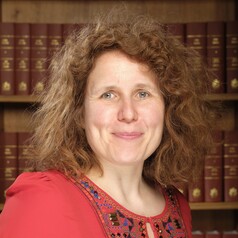
Nathalie Pettorelli
Professor, Conservation Biology, Zoological Society of London
I am a conservation biologist interested in biodiversity monitoring, climate change ecology and nature recovery. I did my PhD in France and then worked in Norway and Canada before starting at the Institute of Zoology, Zoological Society of London, in 2006.
Less ![]()
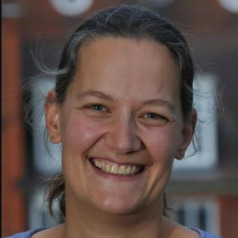
Nathalie Vriend
Associate Professor of Thermo Fluid Sciences, University of Colorado Boulder
Dr. Nathalie Vriend leads the Granular Flow Laboratory. She is an expert in performing detailed laboratory experiments and targeted field work involving particulate flows such as sand and snow. In addition, she also employs numerical simulations and theoretical modelling to complement observations, often in collaboration with scientists from multidisciplinary fields. She has active projects in granular rheology and avalanching, and dune structure and migration. In the past she worked on the dynamics of real snow avalanches, singing sand dunes, silo honking, and seismic wave propagation. Flowing granular materials arise everywhere around us, in industry from pharmaceutical processes to bulk goods transport lines, and in nature from snow avalanches to devastating landslides. To mitigate industrial economic losses and reduce hazards of naturally occurring flows, we need to be able to measure and model static and flowing granular materials, with transitions strongly depending on the spatial boundary conditions of the flow, external forcing, and time-dependent starting and stopping phenomena.
Less ![]()
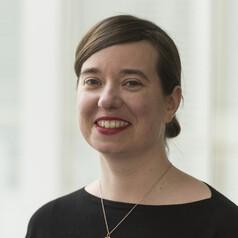
Nathalie Weidhase
Lecturer in Media and Communication, University of Surrey
I am a Lecturer in Media and Communication in the Department of Sociology. Before joining the University of Surrey in September 2020, I researched and taught at Bournemouth University, Birmingham City University, the University for the Creative Arts, and Roehampton University. I hold a PhD in Cultural Studies from Roehampton University.
My research is situated within the field of feminist media studies, with a focus on formations of feminism and postfeminism in popular culture and media. I am especially interested in the construction of these formations in popular music on the one hand, and political communication (in its broadest sense) on the other.
At Surrey, I teach on the undergraduate modules on the BSc Media and Communication and supervise undergraduate and postgraduate dissertations. I am a Fellow of the Higher Education Academy (FHEA).
Less ![]()

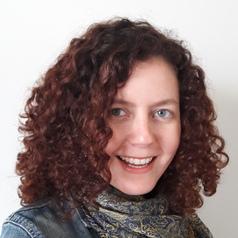
Nathalie Wierdak
Teaching Fellow, University of Otago
As an accomplished Teaching Fellow at the University of Otago's esteemed Otago Business School, I have been instrumental in transforming the way businesses engage with their stakeholders. My role encompasses advising the industry sector on cutting-edge stakeholder engagement practices, as well as creating robust monitoring and evaluation frameworks that drive results.
I am passionate about designing innovative learning experiences that explore the critical intersections of Business, Government, and Society.
As the Co-Director of the Master of Sustainable Business program, I have been at the forefront of molding future leaders who are primed to excel in the rapidly evolving business landscape. My expertise in supervising and coordinating research projects for Master's students has enabled them to achieve their academic goals and contribute to the field of sustainable business.
I also take pride in my role as the Academic Lead for the Winds of Change Programme, where I strive to equip students with the knowledge and skills necessary to navigate the dynamic world of business and effect positive change.
Less ![]()
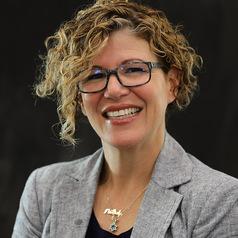
Nathaly Shoua-Desmarais
Assistant Dean for Student Success and Well-Being and Associate Professor of Psychiatry and Behavioral Health, Florida International University
Nathaly Shoua Desmarais works within the Office of Student Affairs overseeing student personal and academic counseling, as well as health and wellness programs. Desmarais’ areas of interest span from medical student well-being and mental health to resident and physician well-being and mental health. She is also interested in professional well-being including faculty and staff.
Less ![]()

Nathan Aaron Kerrigan
Nathan Kerrigan is a Research Assistant at Coventry University. He uses ethnographic approaches to explore a number of issues around identity, community and exclusion. This research tends to examine the ways rural identities are maintained and protected from wider social pressures such as urbanisation, neoliberal expansion and population growth. In this, he has focussed on the ways in which prejudices, such as racism, against minority ethnic groups are worked up as unintended consequences.
Less ![]()

Nathan Bossoh
Research Fellow in History, University of Southampton
Nathan earned his PhD in History and Philosophy of Science from UCL in 2022, is a Research Associate at the London Science Museum, and a Research Fellow in History at Southampton University. In broad terms his research situates around the intersecting themes of empire, race, and religion as entangled operations in the historical production and transmission of science, medicine and museums. A core component of his work explores the ways in which African knowledge and practice, as well as European perceptions of Africanness, influenced and shaped numerous historical developments in science, medicine, and Western museums. His main period of interest is roughly 1750 to the present, and regionally he focuses on Britain and West Africa but has secondary interests in modern Japan as well. Nathan utilises postcolonial, decolonial, and material cultural approaches, and as an applied historian engaged in interdisciplinary research he actively draws on perspectives gathered from a range of fields including science and religion; science and technology studies; environmental humanities; African studies; and museum studies.
Less ![]()

Nathan Cheek
Assistant Professor of Psychological Sciences, Purdue University
I received my Ph.D. in Psychology and Social Policy from Princeton in 2021, after which I completed a postdoctoral fellowship at Princeton before beginning as an Assistant Professor at Purdue University in 2022. I study biased beliefs that contribute to inequality, including stereotypes people hold about individuals in poverty and about individuals who experience gender-based violence. I also study decision-making, especially related to how context shapes people's judgments and choices.
Less ![]()

Nathan Cheetham
Senior Postdoctoral Data Scientist, Twin Research & Genetic Epidemiology, King's College London
Nathan Cheetham is a quantitative researcher studying the long-term effects of the coronavirus pandemic on health. Nathan is focused on understanding the role of social factors on health outcomes in the United Kingdom.
Since 2021, Nathan has been at King's College London, where he has worked with the TwinsUK and COVID Symptom Study Biobank studies, researching immune response to COVID vaccination and the long term effects of COVID infection on cognition and everyday functioning.
Nathan has a background in physical sciences, completing his MSci in Natural Sciences at Durham University in 2013. He then moved to Imperial College London where he earned his PhD in Physics in 2018, researching new materials for solar energy applications.
Following his PhD, Nathan moved to NHS North East London Clinical Commissioning Group in 2019, working as a data analyst and manager. During the coronavirus pandemic, Nathan developed a mathematical model to estimate the effects of easing restrictions on hospital admissions (Cheetham et al., Scientific Reports, 2021), created a interactive tool for senior leadership to track COVID-19, and joined the North East London vaccination program team to help set up and deliver COVID-19 vaccinations.
Less ![]()
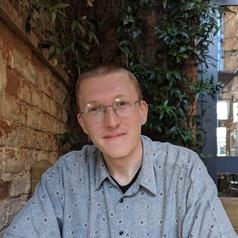
Nathan Critch
Teaching Associate, Department of Political Science and International Studies, University of Birmingham
I am a Teaching Associate at the University of Birmingham, interested in issues related to governance, the state, and crisis management. My recently completed doctoral research examines the use of post-crisis inquiries in the UK.
Less ![]()

Nathan Dooner
PhD Candidate, Languages and Literature, De Montfort University
Authorship Attribution in Early Modern Drama: A survey of the Shakespeare Apocrypha
My interest is in stylometry — the science of measuring writing styles — and it how can be best applied to the diverse field of Early Modern English.
My research examines the Shakespeare apocrypha, a group of 17th Century plays published under Shakespeare’s name, but which have historically been regarded as containing little-to-none of his writing. By developing a new suite of stylometry software alongside my studies, my hope is to glean new insight into the authorship of these texts, while creating a set of tools that can be easily circulated to other researchers, or students, who are interested in studying authorship.
Research Area
Languages and Literature
Publications
"Reading Robert Greene: Recovering Shakespeare’s Rival", Shakespeare, 2023
https://www.tandfonline.com/doi/full/10.1080/17450918.2023.2226119
"Principal Component Analysis and Authorship", Digital Scholarship in the Humanities, 2023
https://academic.oup.com/dsh/advance-article-abstract/doi/10.1093/llc/fqad054/7295827
"The Old Law Table and Arden of Feversham", Notes and Queries, 2024
https://academic.oup.com/nq/advance-article/doi/10.1093/notesj/gjae106/7758213
Less ![]()

Nathan Einbinder
Senior Research Fellow in Agroecology, School of Biological and Marine Sciences, University of Plymouth
My background is in agroecology and human geography. For the past 15 years I have worked in the Maya-Achí territory in Guatemala, researching traditional agriculture and community development, and accompanying farmers organisations working to restore agroecological practices and the local food system.
My work here began as a human rights observer. I also belonged to a group of academics studying some of the problems that were developing from international projects in indigenous areas, including mining, hydroelectric schemes and other infrastructure. My master’s research concerned the displacement of indigenous people and violence committed against them. My interests soon led me towards farming and food systems.
Through a university in Mexico called El Colegio de la Frontera Sur, I conducted my PhD investigating the motivations for adoption and maintaining agroecological practices in the Maya-Achi territory.
Less ![]()
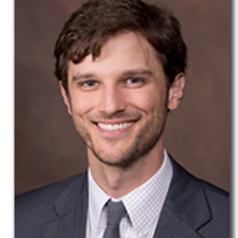
Nathan French
Associate Professor of Religion, Miami University
Dr. French's research interests closely parallel his teaching interests. His research background is in Islamic law, Islamic legal theory, Islamic theology, and contemporary Middle East history. Within these, Dr. French's research explores how contemporary Jihadi-Salafi movements, such as al-Qa'ida and ISIS, appropriate and re-interpret Islamic law and theology for their sociopolitical projects.
He is presently completing his monograph, And God Knows the Martyrs: Theodicy, Violence, and Asceticism in Jihadi-Salafism.
Less ![]()

Nathan Higgins
PhD candidate in Psychology, Monash University
Nathan Higgins is a 4th year PhD candidate at the Turner Institute for Brain and Mental Health at Monash University in Australia. His work focuses on the responsible research and innovation of neurotechnologies, with a specific emphasis on ethical issues related to post-trial access to implantable neural devices. He completed his undergraduate and honours degrees at the University of Melbourne, majoring in Neuroscience. Nathan has recently concluded a full-time research assistant position at the Monash Bioethics Centre, where he was a member of a core team engaged in a Wellcome Trust-funded horizon scan of bioethical issues in anxiety, depression, and psychosis research. He has served as the Chair of the International Neuroethics Society's Student / Postdoc Committee since 2023 and is a co-lead of the society's Neural Interfaces Affinity Group.
Less ![]()

Nathan Kettlewell
I am a Chancellor's Post-Doctoral Research Fellow in the Economics Discipline Group at the University of Technology Sydney and a research affiliate of the Institute of Labor Economics (IZA). My main research interests are public policy, health economics and behavioural economics. I am particularly interested in the formation of peoples' risk attitudes and what these attitudes mean for their life outcomes, understanding peoples' demand for private health insurance, and causal evaluation of government programs.
Less ![]()
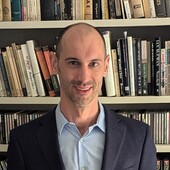
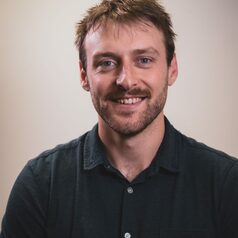
Nathan Nuzum
INSPIRE Postdoctoral Researcher at APC Microbiome Ireland, University College Cork
Dr Nathan Nuzum completed an undergraduate degree in Exercise and Sports Science at Deakin University in Melbourne, Australia. Nathan then completed his honours in neurophysiology, conducting research in relation to motor control and using brain stimulation techniques such as transcranial magnetic stimulation and transcranial direct current stimulation. Nathan translated this exercise and neurophysiology experience into a broader project for his PhD where he investigated the gut microbiome across typical healthy ageing and in Parkinson's disease. Nathan has recently taken up a postdoctoral research position at APC Microbiome Ireland.
Less ![]()
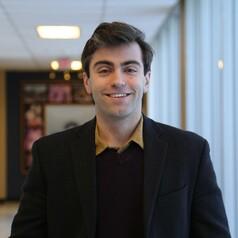
Nathan Rickey
Doctoral Student, Faculty of Education, Queen's University, Ontario
I am currently completing the second year of my PhD studies in the Faculty of Education at Queen's University. My area of research is classroom assessment. Specifically, my work examines the ways in which teachers and students leverage classroom assessment to facilitate student learning. My work has been published in top education journals, such as the Journal of Educational Research, and I am currently building my academic publishing record. Prior to beginning my Master of Education studies in 2019, I was a secondary school English Language Arts teacher in the United Kingdom for 5 years.
Less ![]()
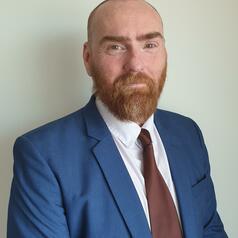
Nathan Ryan
Doctor of Criminology, Australian Catholic University
Nathan completed his doctorate at the School of Criminology and Criminal Justice at Griffith University. His primary research area is in the investigation process in missing body homicide investigations with a focus on investigative interviewing to retrieve the spatial memory of suspects and patterns of hiding behaviour. Nathan has conducted research investigating both perceptions of rape trial testimony and conducted interviews with incarcerated domestic violence offenders. He has additional knowledge in the psychology of criminal behaviour, theory of policing and research methodology. Currently he is researching the impact of the prison visitation process on visitors.
Less ![]()
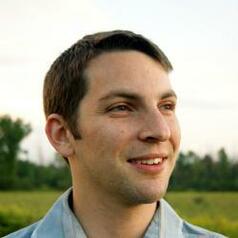
Nathan Sanders
Affiliate, Berkman Klein Center for Internet & Society, Harvard University
Nathan Sanders is a data scientist focused on creating open technology to help vulnerable communities and all stakeholders participate in the analysis and development of public policy.
As a Berkman Klein Center Fellow in 2020-2021, Nathan helped create the Harvard Climate Justice Design Fellowship program and the Massachusetts Platform for Legislative Engagement (MAPLE).
Nathan has helped build and lead data science teams in industry at Legendary Pictures, WarnerMedia, and Flagship Pioneering, developing and applying methods in Bayesian inference, natural language processing, computer vision, and deep learning. In the policy domain, he has built open source applications for participatory oversight of environmental regulation in collaboration with the Mystic River Watershed Association in Massachusetts; developed statistical methods for public health analysis modeling long term trends in the rate of mass public shootings; and served as a science policy fellow in the Massachusetts Senate and House of Representative.
Nathan is a co-founder of the astrophysical literature digest Astrobites, the multi-lingual association of graduate student science writing collaboratives ScienceBites, and the international science communication workshop series ComSciCon.
He serves on the Board of Directors of the American Institute of Physics and is an Associate Editor of the Harvard Data Science Review.
Nathan did his undergraduate work in Physics and Astrophysics at Michigan State University and earned his PhD in Astronomy and Astrophysics from Harvard University.
Less ![]()
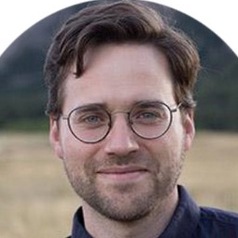
Nathan Schneider
Assistant Professor of Media Studies, University of Colorado Boulder
Nathan Schneider is an assistant professor of media studies at the University of Colorado Boulder, where he leads the Media Economies Design Lab. His most recent book is Governable Spaces: Democratic Design for Online Life.
Less ![]()
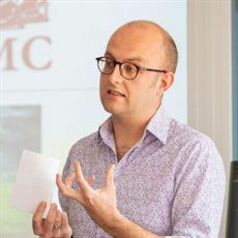
Nathan Waddell
Associate Professor in Twentieth-Century Literature, University of Birmingham
I teach and research early twentieth-century literature, with a core emphasis on the life, work, and controversies of the painter and writer Wyndham Lewis (1882-1957). All of my research is collaborative—with students, postdoctoral scholars, university administrators, and individuals based outside of higher education—and I seek always to make my teaching similarly reciprocal, treating literary scholarship as an urgent conversation about culture and its indispensable place in the world.
Less ![]()
- Market Data





















